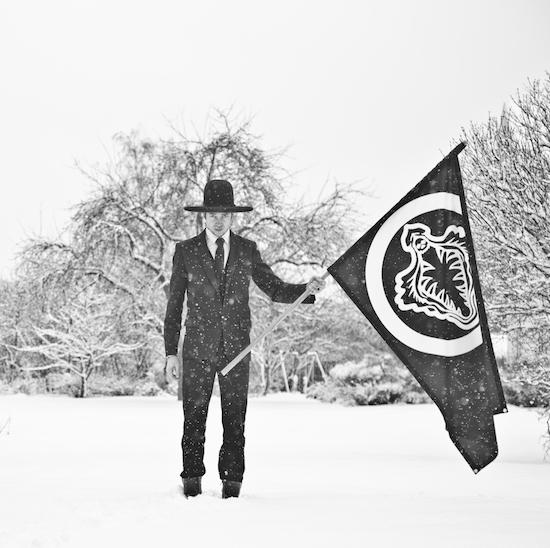Arabrot’s new record The Gospel is, hands down and scream it unto the very heavens, one of the finest releases of 2016. A snarling, melodic, righteous, pompous, funny, bleak, randy album of punishing noise rock, it sees Kjetel Nernes joined by the likes of Stephen O’Malley for a set of defiant songs written as and after he was treated for and recovered from throat cancer. Arabrot are currently on an epic tour that takes in Corsica Studios on Thursday 17th March (tickets here) with a line-up that features Nernes joined by his partner Karin Park and Alex from Gnod on bass, among others. "it’s a brilliant line-up," says Kjetil, "the feeling when we rehearse and everything is so good, I’m really happy about these guys, it’s a good set up. I’m really looking forward to this tour." On Thursday we’ll be running an interview with Kjetil discussing sex, death and what it’s like living in a church; to keep you going until then, he discusses the new LP:
Why The Gospel? Is it The Gospel According To Kjetil?
Kjetil Nernes: It’s definitely the gospel according to me. I had a few different working titles and Kristian and I at Fysisk Format were discussing back and forth. Because of that first song, ‘The Gospel’, the theme of the war against oneself with the sickness and all, Christian said ‘I think you should call the record The Gospel, get straight to the point’. There’s absolutely no biblical thing to it at all.
Why’s there a sample from an old newsreel there?
KN: I get the black and white feeling from the war report on a lot of the songs, which is why I wanted to put it in there, to accentuate the thematics, the vibe, the feeling.
What I really love about the record is the songwriting, these fairly accessible rock songs but still within the Arabrot sound. Was that what you were aiming for?
KN: It was definitely deliberate. I was going for more of a British sound this time around, which means I was concentrating on making it more like Killing Joke or The Fall or even Wire, Stranglers, all of these amazing late-70s, early-80s post punk bands, hence the more vocal-orientated sounds. On the other hand, between all the harsh noise-orientated noise rock that was Arabrot on the first five albums there was always this one song here and there that was a rock song, so I knew I had it in me, and I wanted to make a full record out of that.
Was it a challenge?
KN: They come so easily. But of course there are other songs on the album, like ‘Faustus’, which is quite different again. I tried to make it diverse and not only a straightforward rock album.
It also reminded me a bit of Grinderman, it has this bleak humour to it. Is it true there’s a line that goes "I would wear donkey dick piss for you?"
KN: [Laughs] Do you want an honest answer? That’s good enough for me. It’s not quite correct but that sounds good. The Grinderman thing… I was also trying on this record for the first time to deliberately go for Murder Ballads-style rock songs, because the whole record is a murder ballad.
How much is Nick Cave an influence on what you do?
KN: He’s definitely one of the bigger influences. I’m happy with how it’s turned out, it feels like a culmination of everything that happened up to Solar Anus and then the EPs and then now. It all came together.
Our review said that the record was a "fuck you" to cancer. Is that an interpretation you’d agree with?
KN: Yes definitely. I was writing that whole period of time out of my system, get it out, trying to express that feeling that I experienced during that year.


